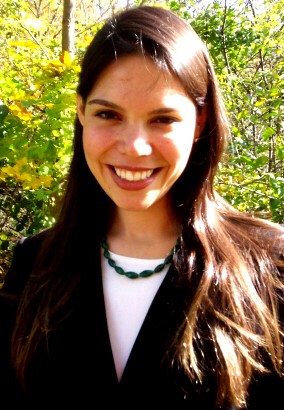The university remains open. For changes to schedules, including remote instruction and operations due to ongoing weather conditions, check the Rutgers–New Brunswick Operating Status page.

Fidan Kurtulus’ understanding of employee share ownership dates to her childhood, which she spent on a vineyard in Turkey that her parents still operate.
“In Turkey, all of the vineyards are a part of an agricultural cooperative,” she says. “At harvest time, they all work to help each other out. The harvest season is short and the grapes have to be harvested very quickly, so the vineyard owners must work together to survive. In agriculture, very often you must rely on your neighbors.”

Professor of Economics at the
University of Massachusetts,
Amherst, has received several
research fellowships through
SMLR’s Institute for the Study of
Employee Ownership and Profit
Sharing.
While working toward a Ph.D. at Cornell University, those early experiences with employee share ownership combined with Kurtulus’ longstanding interest in economics. She began to think about unconventional workplace arrangements—thoughts that coalesced, she says, when Jed DeVaro, an Assistant Professor of Economics, asked her to become his research assistant.
“The project [he needed help with] was on participatory workplaces, collaboration, and teamwork in the workplace, she recalls. “He wanted me to do a lit review. So, while reviewing the work that had already been done, I became very interested in the topic.”
Kurtulus and DeVaro (now at California State University East Bay) co-authored the study, “An empirical analysis of risk, incentives, and the delegation of worker authority.” Then, she received a phone call from Joseph Blasi, the J. Robert Beyster Distinguished Professor at the Rutgers School of Management and Labor Relations (SMLR).
“In 2009, Joe Blasi called and mentioned that he’d read the paper,” she says. “He said that SMLR was starting a new fellowship program and thought that I would be a good fit. That’s how I become an inaugural J. Robert Beyster Fellow.”
Today, Kurtulus is an Associate Professor of Economics at the University of Massachusetts, Amherst. She has looked at a several characteristics of employee ownership during her decade of research in the field, including how it affects worker performance and firm outcomes, and which types of workers prefer employee ownership.
Recently, her work has focused on whether employee-owned firms were better able to weather the economic hardships associated with the Great Recession of 2008. Supported by SMLR’s Joseph Cabral Distinguished Fellowship, which Kurtulus held from 2014-16, she co-authored a book with SMLR Distinguished Professor and J. Robert Beyster Faculty Fellow Douglas Kruse.
Published in 2017, How Did Employee Ownership Firms Weather the Last Two Recessions? Employee Ownership, Employment Stability, and Firm Survival in the United States: 1999-2011 established the first conclusive link between broad-based employee stock ownership and increased employment stability. Kurtulus and Kruse found employee-owned firms had half as many layoffs during the last two recessions.
The book arrived just as ESOPs and other employee-owned businesses were catching the attention of the press. Recent articles in Forbes, Fast Company, and The Atlantic all mention the increased productivity, worker stability, and satisfaction that are hallmarks of this form of business governance.
Kurtulus says she has benefited greatly from her association with SMLR and its newly launched Institute for the Study of Employee Ownership and Profit Sharing. In addition to the receiving the Beyster and Cabral fellowships, she received a Michael W. Huber Fellowship in 2011 and a Rutgers Senior Fellowship in 2016. And, she regularly attends SMLR’s annual Beyster Symposium and Mid-Year Fellows Workshop in Honor of Louis O. Kelso.
“The conferences are not just a way for academics to communicate with each other,” she says. “They also represent an opportunity to communicate with companies that already have employee ownership or that are interested in employee ownership, which is vital to my work.”
This is the fourth installment in a new series exploring the work of Research Fellows in SMLR’s Fellowship Program on Employee Ownership and Profit Sharing.


